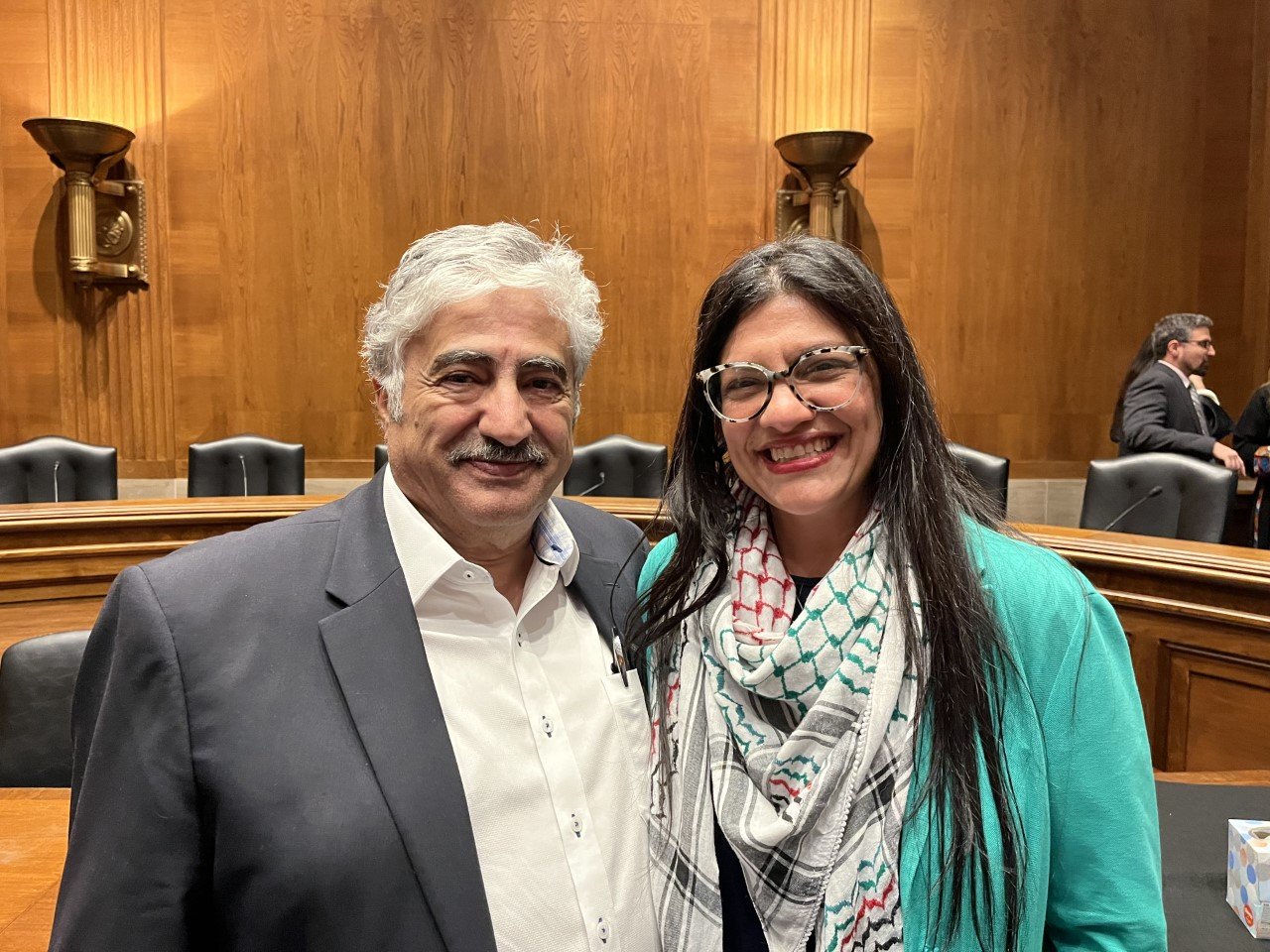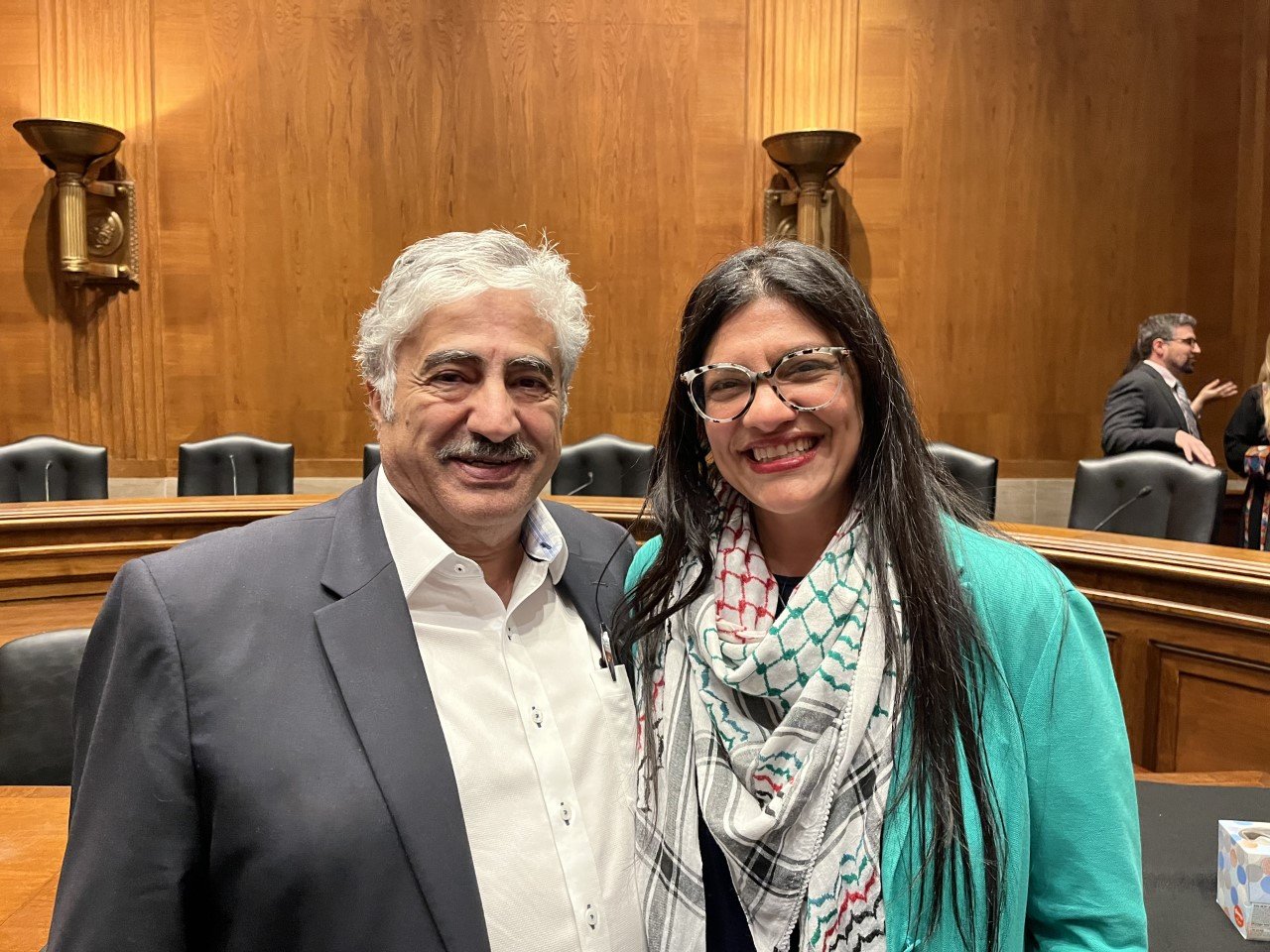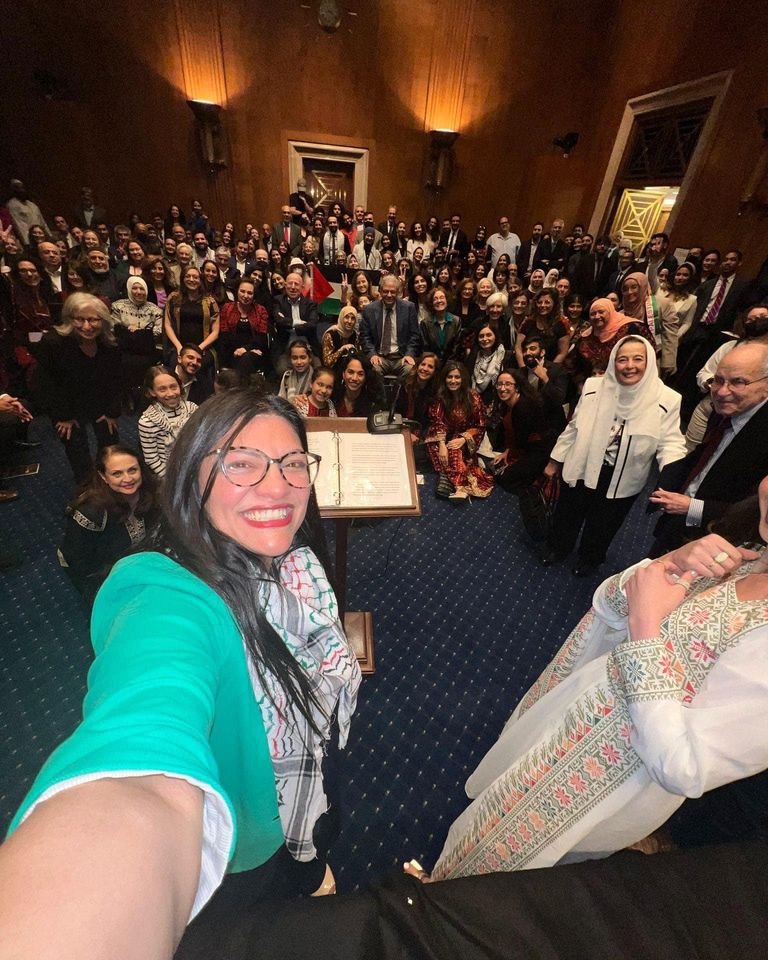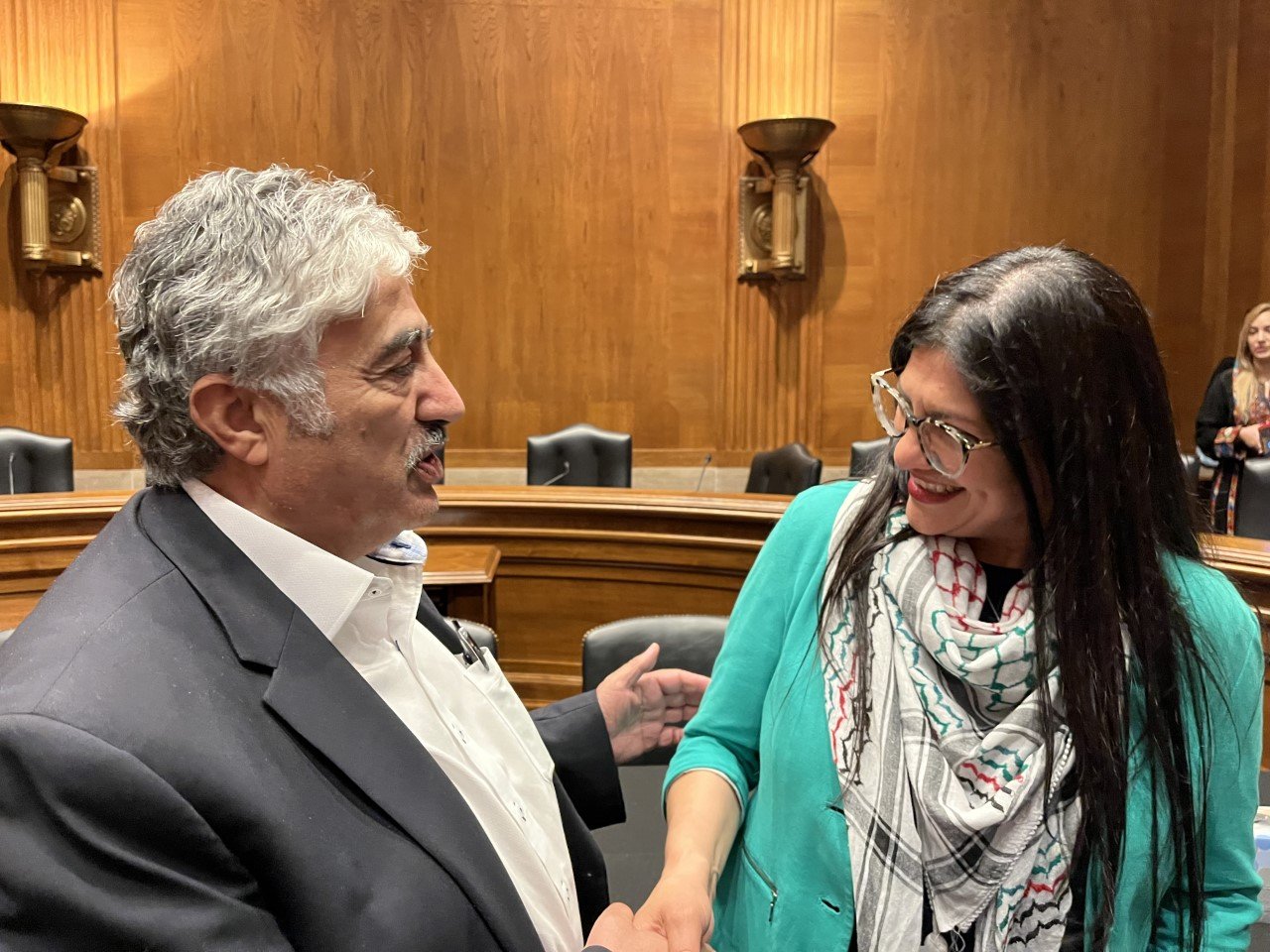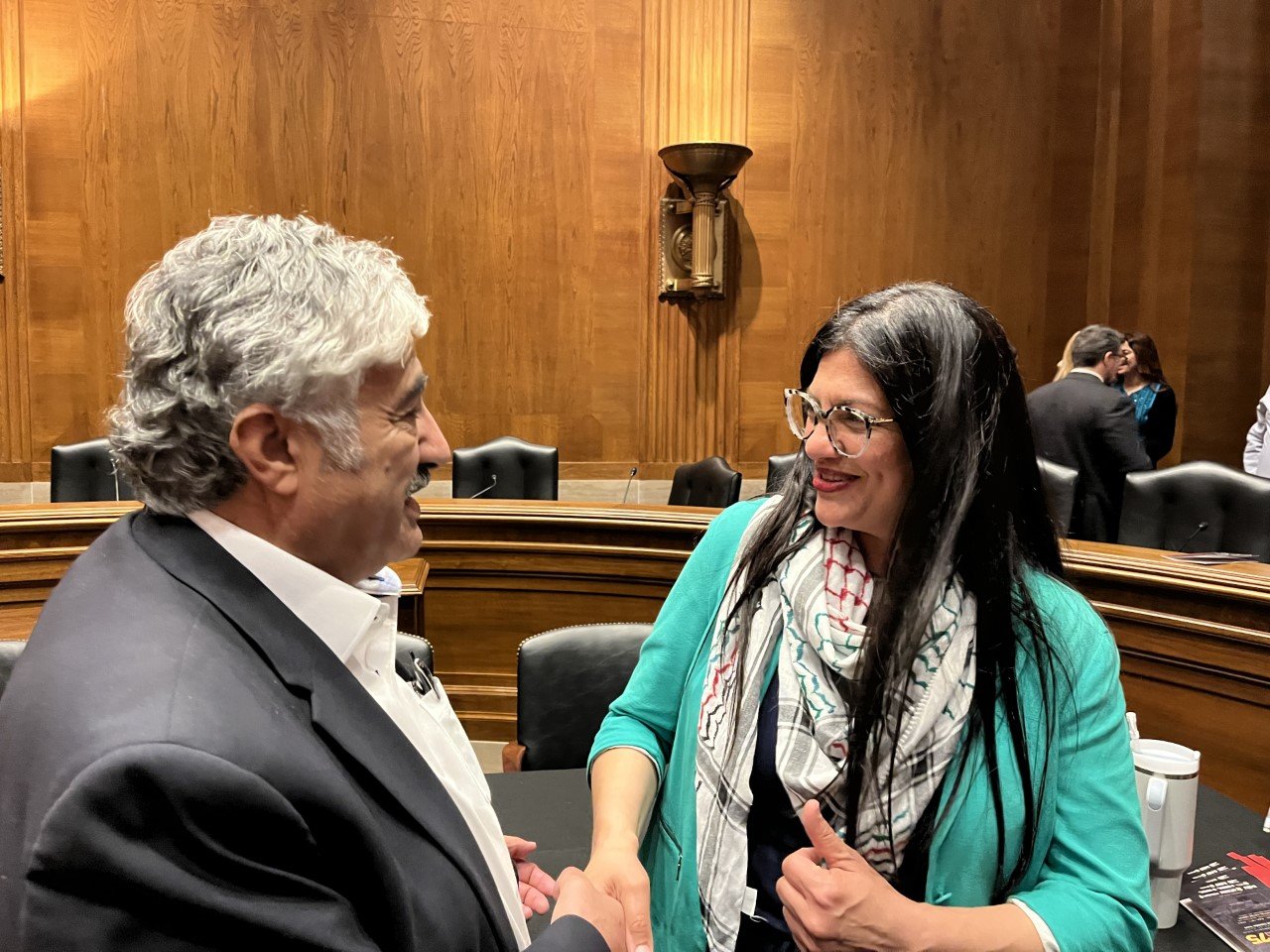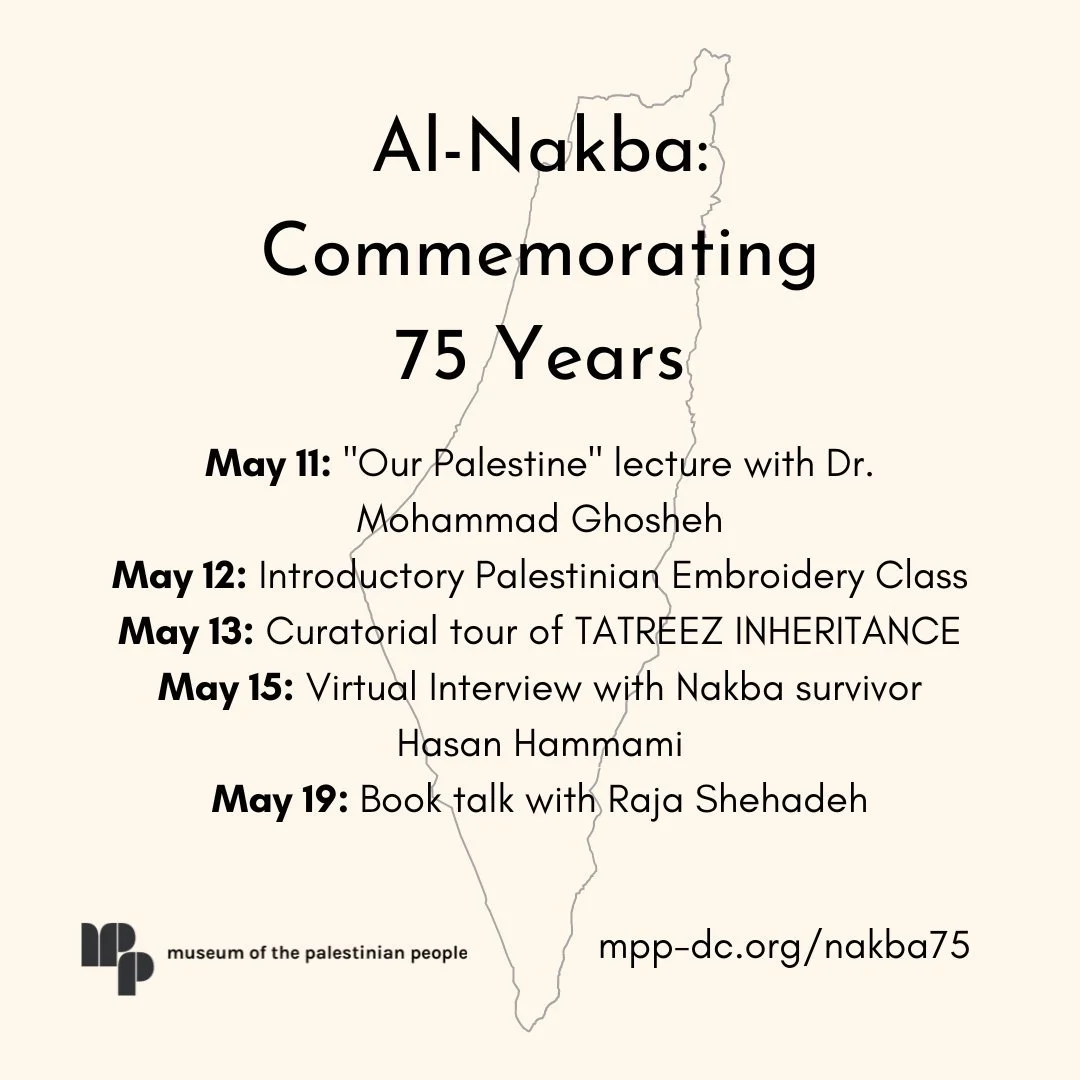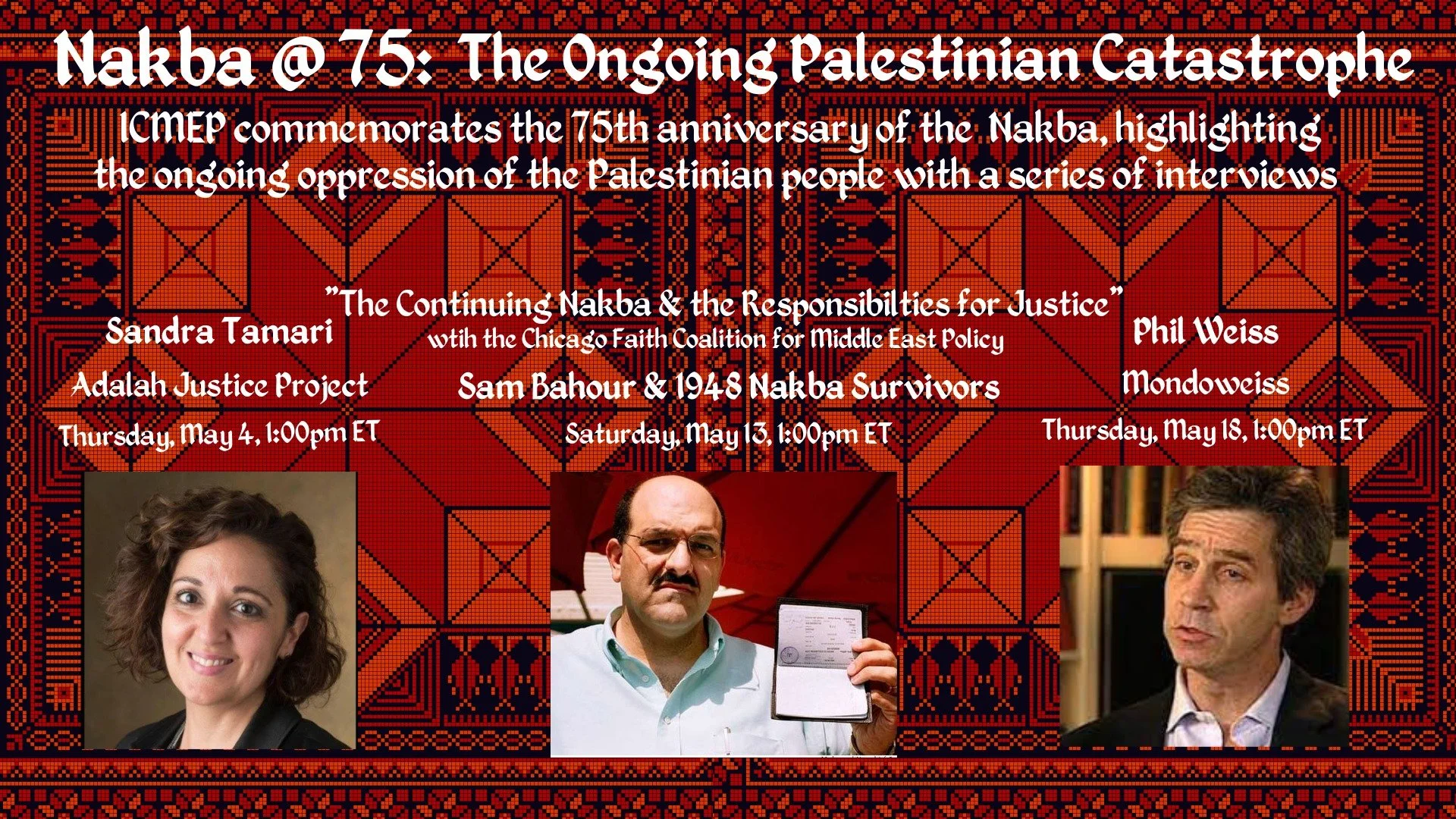Ongoing Nakba
by Jonathan Kuttab
As we commemorate the 75th anniversary of the Nakba (“catastrophe”) of May 15, 1948, many commentators have been pointing out that the Catastrophe did not simply occur on that date or year but rather that it is an ongoing catastrophe, beginning prior to 1948 and continuing to the present day.
May 15, 1948 marks the creation of the State of Israel, and it represents the height of the campaign for the destruction of the Palestinian community which permitted that creation. Even prior to 1948, and well before the entrance of the Arab armies into the fight, the armed forces of the Zionists had substantially carried out a successful campaign to depopulate hundreds of Arab villages, drive out their occupants through terror and massacres, take over their lands and properties, and expand their control far beyond those areas allocated unfairly to them under the UN partition resolution of 1947. That resolution granted to the Zionists approximately 51% of the "territory" of Palestine, even though Jews constituted at that time only one third of the population. And, despite intensive efforts to buy land from wealthy absentee landowners, they only held ownership of about 7% of the land.
There are three basic elements to the Nakba. All three were essential for the creation of a Jewish state in Palestine. All three elements continue to operate today. First is the expulsion of hundreds of thousands of the land’s original inhabitants (and the barring of their return), which together with a massive influx of migration was intended to create a Jewish demographic majority. The ongoing refusal to allow Palestinian refugees to return, as well as continued attempts to push out additional numbers of Arabs in the years since, attests to the ongoing Nakba on the demographic front. As fragmentation and apartheid became the standard way of life for the remaining Palestinian population, the refugees were restricted entirely from accessing the “higher strata” of recognized rights, such as Israeli citizenship, East Jerusalem residency, West Bank residency, or Gaza residency (as opposed to outright exile).
The second key element to the Nakba is the appropriation of land and its dedication for exclusive Jewish use. The events of 1948 and the creation of numerous laws, including the “Custodian of Absentee Property” law, was followed by continuing efforts to confiscate and acquire land from Arabs, place that land in the public domain, and then dedicate it for exclusive Jewish usage and settlement building. This policy continues to this day, as Israel takes over more and more land and property in the West Bank, Sheikh Jarrah, Masafer Yatta, the Negev, and the Galilee. This aspect of the Nakba also manifests itself in severe limits placed on Arab use of any remaining land through closures, urban planning, and zoning restriction, as well as outright intimidation. In this area, as well, the catastrophe of the Nakba continues to torment the Palestinian people today.
The third element inherent in the Nakba is the intentional destruction, cancellation, and denial of Palestinian identity markers, structures, and institutions. This first began with the myth of a “land without a people” and was followed up with the bizarre claim that Israel “made the desert bloom.” It is often manifested in the denial that there ever existed such a thing as Palestine; that Arabs of the Holy Land are just recent nomadic immigrants; or the claim that “Jordan is Palestine.” Palestinian citizens of the state of Israel (a full 21% of that population) are marginalized and referred to by Israel as “Israeli Arabs” rather than Palestinians, and they are treated as a hostile fifth column. These attempts at erasure explain the Zionist reluctance to use the term “Palestine” at all or to ever recognize a Palestinian state even in the remaining 22% of Palestine captured in 1967, an area often referred to by Israelis as “Judea and Samaria” (or, at best, as shrinking “Palestinian Authority territory”). This also explains the utter rejection of the Palestinian flag, along with all aspects and expressions of Palestinian life and culture. It includes the appropriation of Palestinian foods, such as falafel and hummus, while simultaneously claiming them to be “Israeli.”
The labeling of the Palestinian people, as a whole, as “terrorists” and their legitimate struggle, including nonviolent strategies and tactics, as “terrorism” is part of this campaign of erasure. The total demonization of Palestinian armed struggle, even when done in self-defense and aimed at legitimate military targets, like soldiers and armed settlers, (in accordance with international laws of armed conflict) is viewed as the height of terrorism. Even the use of diplomatic channels, like calls for international accountability and International Criminal Court sanctions, is described as being antisemitic. Nowhere is there any room for legitimate Palestinian struggle or even the telling of the Palestinian narrative and story. Rights, if any are acknowledged, are to be favors resulting from Israeli generosity and acquiescence to Zionist power structures and narratives.
The IHRA definition of antisemitism attempts to codify this position into law and policy as well. All opposition to Zionism and the state of Israel, according to the IHRA definition, is defined as “antisemitic hate speech” and is to be repudiated and silenced by all decent people. Zionism and the state of Israel are not only to be recognized as legitimate, but any opposition or challenge to them is treated as illegitimate by definition.
As recently as yesterday, the attempts of Congresswoman Rashida Tlaib, herself a Palestinian American, to hold an event at the US Capitol Visitor’s Center to educate congresspersons and their staff about the Nakba was canceled abruptly by Speaker of the House Kevin McCarthy. He did so at the request of Zionist organizations who labeled the event as antisemitic. Luckily, at the invitation of Senator Bernie Sanders, the event was moved to a Senate conference room over which Speaker McCarthy has no jurisdiction. The crowd (myself included) was now standing room only and heard from historians, Nakba survivors, and activists, who asserted that Palestine absolutely exists, that its people have not disappeared nor have they been silenced, and that even though attempts to cancel and deny Palestinians continue to this very day, such attempts have failed to achieve their goal.
Even as Israel controls the entire area of historic Palestine and proactively continues with the first two elements of the Nakba, there is much we can do to bring an end to the Nakba’s third element—by promoting Palestinian voices, highlighting Palestinian identity, raising Palestinian flags, wearing Palestinian keffiyehs, and challenging those destructive narratives and tropes that seek to eliminate or denigrate the Palestinians.
The raising of Palestinian flags during the recent FIFA World Cup matches was just such a demonstration. The nonviolent activities of BDS, the demand for international accountability and ICC sanctions, and insisting on the humanity and dignity of Palestinians go a long way towards ending the Nakba, and perhaps such activities can push all sides towards a peaceful solution based on equality and justice. Each of us in our own small way can keep alive the story of Palestine. That is the first step towards dismantling apartheid and ending the ongoing Nakba once and for all.
FOSNA News
Visit Palestine With Us This Summer
We are hosting a witness trip with Sabeel led by Nyle Fort and Jonathan Kuttab this July! Experience the resilience and struggle for liberation of the Palestinian people. If you are curious and interested in joining please fill out the form below and share it with anyone who may be interested in being part of this journey. We will contact you very soon!
Take Action!
Defending the Human Rights of Palestinian Children and Families Act (HR3103)
Tell your representative to cosponsor or support the Defending the Human Rights of Palestinian Children and Families Living Under Israeli Military Occupation Act, reintroduced by Rep. Betty McCollum (MN-04) for the new congressional term.
Demand Justice for Shireen Abu Akleh and Contact the Department of Justice
This week, on May 11th, we mark one year since Palestinian American journalist Shireen Abu Akleh was killed. Now is the time to demand justice.
It is important to Shireen's family, to journalists and human rights activists around the world, that this investigation be completed and the findings made public. You can help keep Shireen's memory alive by contacting the Department of Justice and inquiring as to the status of the report and urge them to complete and publish their findings:
Use the Department of Justice web form linked to below:
Make the subject of your message either: “Federal Bureau of Investigation” or “Message to the Attorney General"
Copy the text below into the box, or compose your own.
Submit your letter.
Urgent Action: Free Mohammed al-Halabi
Use this template to write to Minister of Justice Yariv Levin about the wrongful conviction of Gaza aid worker Mohammed al-Halabi as his appeal hearing on May 17th fast approaches.
Tell CNN: Stop Censoring Palestinians
(JVP Action) On May 10, 2023, House Speaker Kevin McCarthy tried to block an event on Capitol Hill to mark the 75th anniversary of the Nakba, at which Palestinians including Congresswoman Rashida Tlaib were slated to speak. Despite McCarthy's attempts, the event relocated to a Senate office room provided by Senator Bernie Sanders that was overflowing with Palestinians and allies.
But before the event, CNN's Jake Tapper went on air and slammed the gathering, parroting a letter sent by the Anti-Defamation League (ADL) to McCarthy that called the event and its organizers, including JVP Action, antisemitic. And Tapper did not include a single Palestinian voice in his rhetoric.
Let Tapper and CNN know that we hold them to account for their de facto endorsement of Israeli apartheid and their egregious disregard for Palestinians.
Commemorate Nakba Day
(Kumi Now Action) Commemorate Nakba Day on May 15 by changing the name of your driveway, private road, school walkway, local street, or hall. Post informational signs to help people understand the name and Nakba Day.
Take a photo of your street signs and post them to social media. Include a link to this page of the Kumi Now website along with the hashtags #NakbaDay, #KumiNow, and #Kumi20. See more on the Kumi Now website.
Get Involved
May 11 - 19: Washington, D.C.
Museum of the Palestinian People Presents: Al-Nakba: Commemorating 75 Years
To commemorate the 75th year since the Nakba began, the Museum of the Palestinian People is hosting a series of events dedicated to uplifting Palestinian cultural heritage, historic preservation, and lived experiences. Please join us in honoring Nakba survivors and those determined to keep Palestinian culture and history alive.
May 13 - 18: Online
ICMEP Presents: Nakba @ 75: The Ongoing Palestinian Catastrophe
The Indiana Center for Middle East Peace commemorates the 75th anniversary of the Nakba by highlighting the ongoing oppression of the Palestinian people with a series of three interviews/webinars free and open to the public.
May 4: Sandra Tamari, founder of the Adalah Justice Project
May 13: Sam Bahour & 1948 Nakba Survivors, The Continuing Nakba & the Responsibilities for Justice. Cohosted with the Chicago Faith Coalition on Middle East Policy
May 18: Phil Weiss, founder, Mondoweiss
These will be conducted via Zoom, and you are invited to log in and join us - we hope you will!
May 13: Online
Canadian Voices for Palestinian Rights presents: Al Nakba Day with Dr. Basel Ghattas
Join CVPR's webinar and Q&A with Dr. Basel Ghattas. Dr. Ghattas is a Palestinian politician and prominent community activist from Rameh, a Palestinian town in the Upper Galilee. For more than 12 years he led the Galilee Society, an NGO involved in health and environmental issues with the Palestinian community in Palestine 1948. In 2007, he established Malakom, the only business magazine focused on the Palestinian community in Palestine 1948/Israel.
During his work as a Knesset member, he focused among other issues on Palestinian prisoner's rights. Out of humanitarian and conscientious motives, Dr. Ghattas decided to use his immunity as a Knesset member to provide mobile phones to Palestinian political prisoners who are deprived the basic right to call their families. The Israeli security forces filed a legal case against him with serious accusations of supporting terror and terrorists and harming State security. He resigned his position and was imprisoned for two years with other Palestinian political prisoners.
May 13: London
Nakba 75: National March
Join the protest march and rally for Palestine taking place on Saturday 13th May 2023 in central London.
Organised by: Palestine Solidarity Campaign, Stop the War Coalition, Palestinian Forum in Britain, Friends of Al-Aqsa, Muslim Association of Britain, Campaign for Nuclear Disarmament.
Date: Saturday 13 May 2023
Time: 12pm
Location: The BBC, Portland Place W1A, London
May 14: Washington, D.C.
AMP Rally: Nakba 75 - One Year Closer
On Sunday, May 14th at 1 pm EST, American Muslims for Palestine, along with the Palestinian Youth Movement, Palestinian Christian Alliance for Peace, MD 2 Palestine, and supporters from across the Palestine movement will lead a rally in Washington, D.C. at the Washington Monument to commemorate 75 years of the Nakba.
May 14: Vancouver
Nakba 75, The Struggle Continues - Demonstration
Vancouver, all out for Palestine! Join the demonstration outside of Vancouver Art Gallery on May 14, 1pm.
By Canada Palestine Association, International League of Peoples' Struggle Canada, Masar Badil, Palestinian Youth Movement, Samidoun, Solidarity for Palestinian Human Rights UBC and Students for Justice in Palestine SFU.
May 15: Online
Palestine Return Centre: Ongoing Nakba at 75: Palestinians Demand Right of Return
Stream the Palestine Return Centre's online event on Facebook and Youtube, with speakers Mick Napier, Huwaida Arraf, Muhannad Ayyash, and Richard Boyd-Barrett.
May 17: Online
MFSA and UMKR Present: Knowing the Nakba - The Ethnic Cleansing of Palestine to Create the State of Israel
The Palestinian Nakba (Catastrophe) of 1948 has been called the poisonous root of all that has plagued the Holy Land since that time, with a never-ending impact that pervades the Middle East and the entire world. We cannot hope to understand the present turmoil in the Holy Land - let alone achieve a just peace for all those who live there - without knowing where and how the conflict began: with the ethnic cleansing of indigenous people from their homeland.
Join us for this unique educational and thought-provoking presentation, with moving recollections from living Nakba survivors, expert historical analysis, and riveting video clips.
May 20: Seattle
Palestine on the Edge: Where Do We Go From Here?
SATURDAY, MAY 20, 2 P.M., in person in Bloedel Hall or online via Zoom
Hosted by Amnesty International: Campaign for Palestinian Human Rights [Pacific NW]; co-sponsored by Saint Mark's Mideast Focus Ministry, The Bishop's Committee for Justice & Peace in the Holy Land of the Diocese of Olympia, and Kairos Puget Sound Coalition
Please join this Saturday afternoon conversation with Miko Peled, Israeli-American activist for justice and author of The General’s Son: Journal of an Israeli in Palestine, and Maya Garner, advocate for justice in Palestine and founder of Friends of Hebron, an American non-profit working with peace and justice advocates in the West Bank. Following the conversation, Peled will sign copies of the new Tenth Anniversary Edition of The General's Son, and the Saint Mark's Mideast Focus Ministry will officially open the collection of resources now housed in the Bloedel "Center Stage" meeting room. No need to register for in-person participation; to participate online join using this Zoom link.
May 21: Online
VFHL Film Salon: Remembering the Voices
Two documentary films, Voices across the Divide and Born in Deir Yassin, pull back the carefully constructed curtain of “a land without people for a people without a land.” Since 1948, a monumental effort has been made to promote a romantic mythology of Israel's creation and to hide the brutal violence. But firsthand accounts by both the oppressor and the oppressed, the expeller and the exiled, reveal the ongoing wounds. Nothing is resolved by dialogue alone, yet nothing will be resolved without it. Any hope of coexistence begins when the historical truth is rediscovered and acknowledged. It begins here.
Watch the film for free at your convenience; then join the Q&A Discussion with:
Alice Rothchild: Author, filmmaker, and Assistant Professor, Harvard Medical School (Retd.)
Emad Moussa: Palestinian-British journalist, researcher, and human rights activist
Huda Giddens: Palestinian American educator, Nakba survivor
Ahlam Muhtaseb (moderator): Author, filmmaker, and Professor of Media Studies at CSUSB
Sabeel Ecumenical Liberation Theology Center, Jerusalem:
Weekly
Sabeel Prayer Service. Join Sabeel every Thursday (6pm Jerusalem) for online Bible Study, discussion, and prayer. Examine scripture in light of the ongoing realities confronting the Palestinian Church and the pursuit of Palestinian liberation.
Wave of Prayer. Subscribe to receive Sabeel's Wave of Prayer, enabling friends of Sabeel around the world to pray over issues of critical concern to the Holy Land on a weekly basis.
Kumi Now! (Week 19) U.S. Support for Israel. Palestinians in the occupied territory have long suffered as a result of U.S. support of Israel. The Trump administration’s decisions to move the embassy to Jerusalem on May 14, 2018, cut aid to Palestine, and recognize Israel’s claims to the Syrian Golan are only a few of the markers of America’s neglect of Palestine. Here’s what you need to know and what you can do so that together we can rise up.



